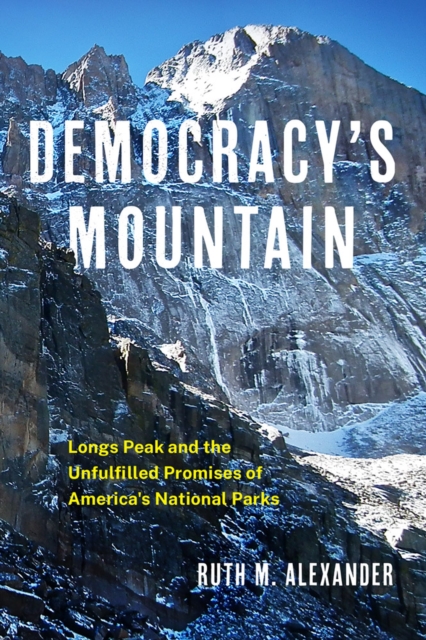At 14,259 feet, Longs Peak towers over Colorado's northern Front Range. A prized location for mountaineering since the 1870s, Longs has been a place of astonishing climbing feats--and, unsurprisingly, of significant risk and harm. Careless and unlucky climbers have experienced serious injury and death on the peak, while their activities, equipment, and trash have damaged fragile alpine resources. As a site of outdoor adventure attracting mostly white people, Longs has mirrored the United States' tenacious racial divides, even into the twenty-first century.
In telling the history of Longs Peak and its climbers, Ruth M. Alexander shows how Rocky Mountain National Park, like the National Park Service (NPS), has struggled to contend with three fundamental obligations--to facilitate visitor enjoyment, protect natural resources, and manage the park as a site of democracy. Too often, it has treated these obligations as competing rather than complementary commitments, reflecting national discord over their meaning and value. Yet the history of Longs also shows us how, over time, climbers, the park, and the NPS have attempted to align these obligations in policy and practice.
By putting mountain climbers and their relationship to Longs Peak and its rangers at the center of the story of Rocky Mountain National Park, Alexander exposes the significant role outdoor recreationists have had--as both citizens and privileged adventurers--in shaping the peak's meaning, use, and management. Since 2000, the park has promoted climber enjoyment and safety, helped preserve the environment, facilitated tribal connections to the park, and attracted a more diverse group of visitors and climbers. Yet, Alexander argues, more work needs to be done.
Alexander's nuanced account of Longs Peak reveals the dangers of undermining national parks' fundamental obligations and presents a powerful appeal to meet them fairly and fully.











